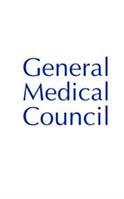Ovarian Cancer

Ovarian cancer begins in the ovaries which are a part of the female reproductive system. There are two ovaries present, about the size of an almond, one on each side of your uterus. They are involved in the production of the female hormones- oestrogen and progesterone and the female sex cells called eggs.
What are the Signs and Symptoms of Ovarian Cancer?
The common signs and symptoms of ovarian cancer may include:
- Abdominal discomfort
- Bloating and feeling full quickly after eating
- Changes in bowel habits, such as constipation
- Weight loss
- Frequent urination
What are the Causes of Ovarian Cancer?
Ovarian cancer may occur due to abnormal changes called mutations in the DNA, which is your genetic code. As a result, the cells in your ovaries multiply uncontrollably leading to the development of an abnormal mass of cells called a tumour which may spread to other parts of your body (metastasis).
What are the Risk Factors for Ovarian Cancer?
The risk factors for ovarian cancer include:
- Family history of ovarian cancer
- Women over 50 years of age
- Use of oestrogen hormone replacement therapy for a long time
- Early puberty and menstruation
What are the Different Types of Ovarian Cancer?
Ovarian cancer can be differentiated into 3 different types based on its origin in your body. These include:
Germ cell tumours: These develop from the egg-producing cells. They are rare and may occur in younger women.
Epithelial tumours: These develop in the epithelial cells that line your ovaries. They are the most common form of ovarian cancer.
Stromal tumours: These develop in the stroma or the cells of the connective tissue.
Stages of Ovarian Cancer
Ovarian cancer is classified into four stages depending on its spread and the organs affected.
Stage 1 ovarian cancer: The tumour is confined to the ovaries and has not spread to other regions such as the abdomen, pelvis, or lymph nodes.
Stage 2 ovarian cancer: The tumour is present in one or both ovaries and has spread to the pelvis, such as the fallopian tubes or uterus.
Stage 3 ovarian cancer: The tumour is present in one or both ovaries and has either spread beyond the pelvis or to the lymph nodes in your abdomen.
Stage 4 ovarian cancer: This is the most advanced stage of ovarian cancer. The tumour cells have spread (metastasized) to distant sites, such as the liver, lungs, spleen, or other organs beyond the pelvis or abdomen.
How is Ovarian Cancer Diagnosed?
Ovarian cancer can be diagnosed with the help of the following:
Pelvic exam: Your doctor visually examines your external genitalia. Then, he/she would insert gloved fingers inside your vagina and simultaneously press on your abdomen to feel for any abnormality in your pelvic region.
Imaging tests such as an ultrasound or computed tomography (CT) scan of your abdomen and pelvis may be done to determine the size and shape of your ovaries.
Blood tests may be ordered to assess your overall health. You may also be tested for cancer antigen (CA) 125 blood test. In this test, the level of a protein called CA125 will be tested in your blood sample. This protein is usually found on the surface of ovarian cancer cells.
What are the Treatments Available for Ovarian Cancer?
Ovarian cancer can be treated with the help of surgery and chemotherapy.
Surgical Treatment
Your doctor may recommend any of the following surgeries depending on the stage of ovarian cancer.
Unilateral Oophorectomy: Surgical removal of one ovary
This is recommended for early-stage ovarian cancer that has not spread beyond one ovary. The affected fallopian tube may also be removed.
Bilateral Oophorectomy: Surgical removal of both the ovaries
The affected fallopian tubes may also be removed. This procedure leaves your uterus intact, so you may still be able to conceive.
Hysterectomy with Bilateral Salpingo-Oophorectomy
Surgery to remove the uterus, both ovaries, and the fallopian tubes. This is recommended if you have an advanced stage ovarian cancer or if you do not wish to have children in the future.
Chemotherapy
Chemotherapy uses drugs that are effective in killing cancer cells in your body. Treatment involves IV infusion of the anti-cancer drugs into your veins or they may be taken orally (by mouth).
Intraperitoneal chemotherapy: Some drugs used in chemotherapy can also be injected directly into your abdomen.
Chemotherapy can be given before surgery but it is commonly used post-surgery to kill any cancer cells that might have remained.
When to Visit a Doctor?
If you notice any abnormal signs or symptoms or have a family history of ovarian cancer/breast cancer, then you should visit a gynaecologist or fertility specialist to get a timely diagnosis.







